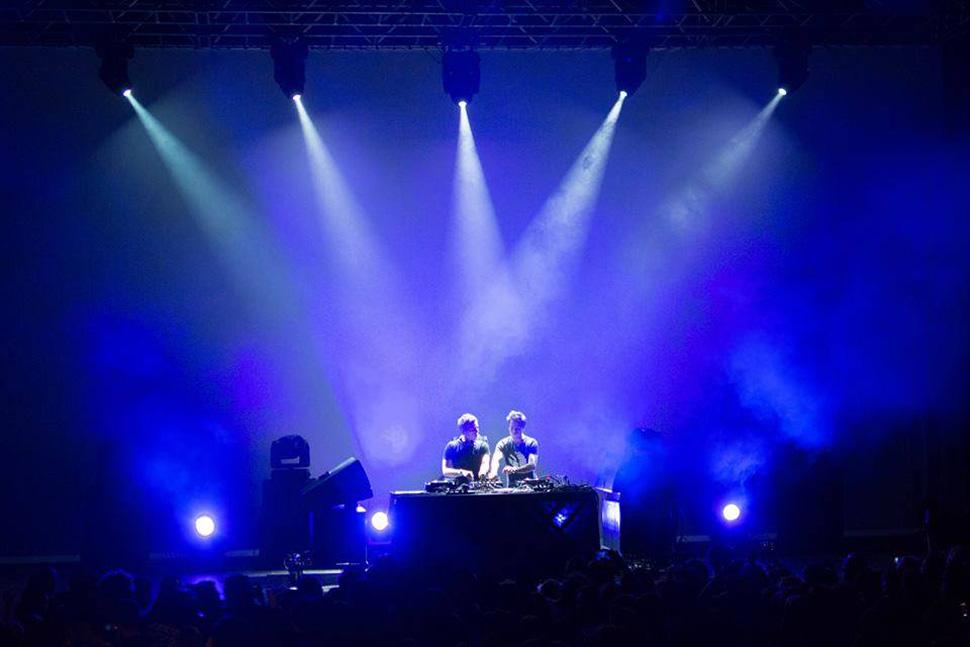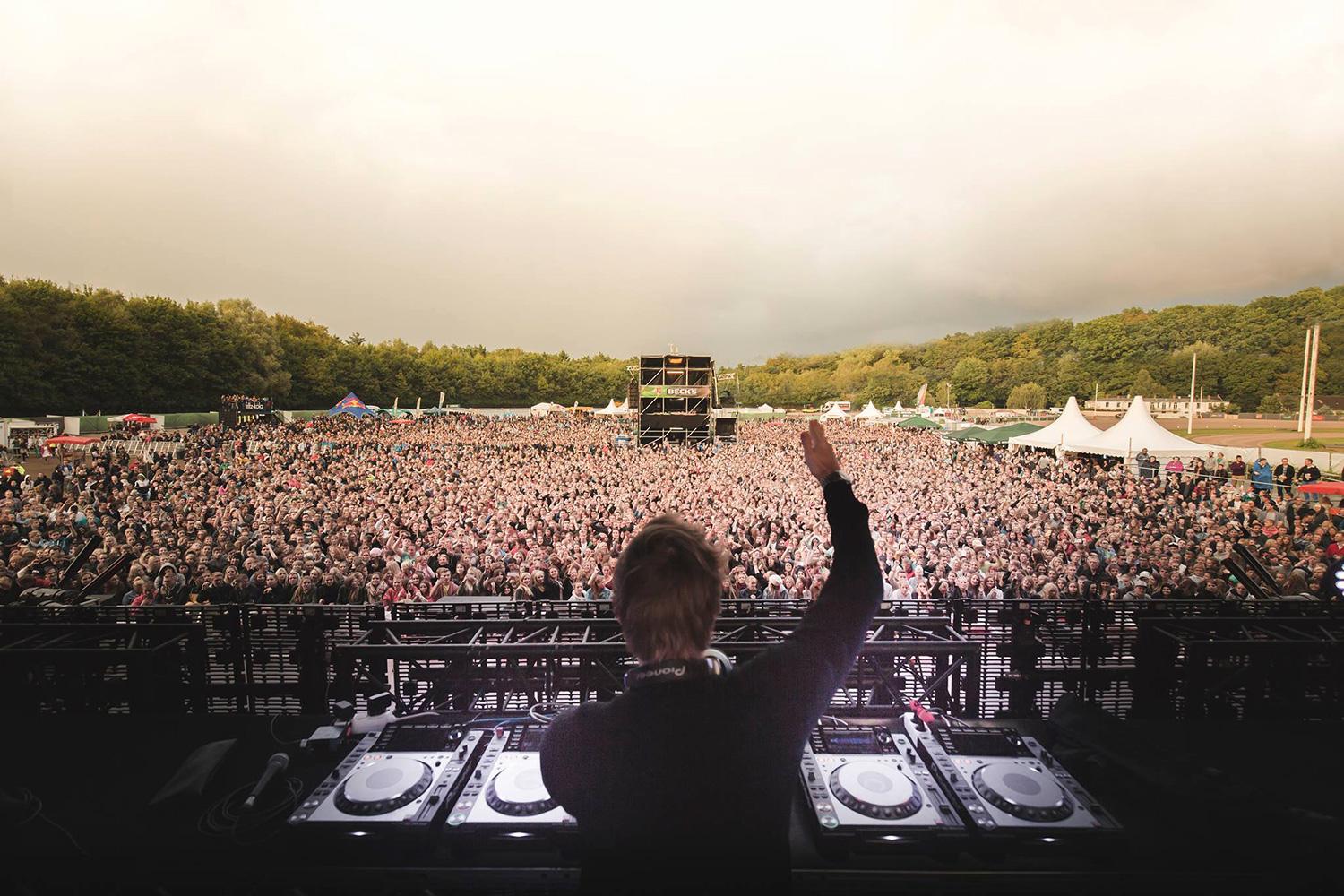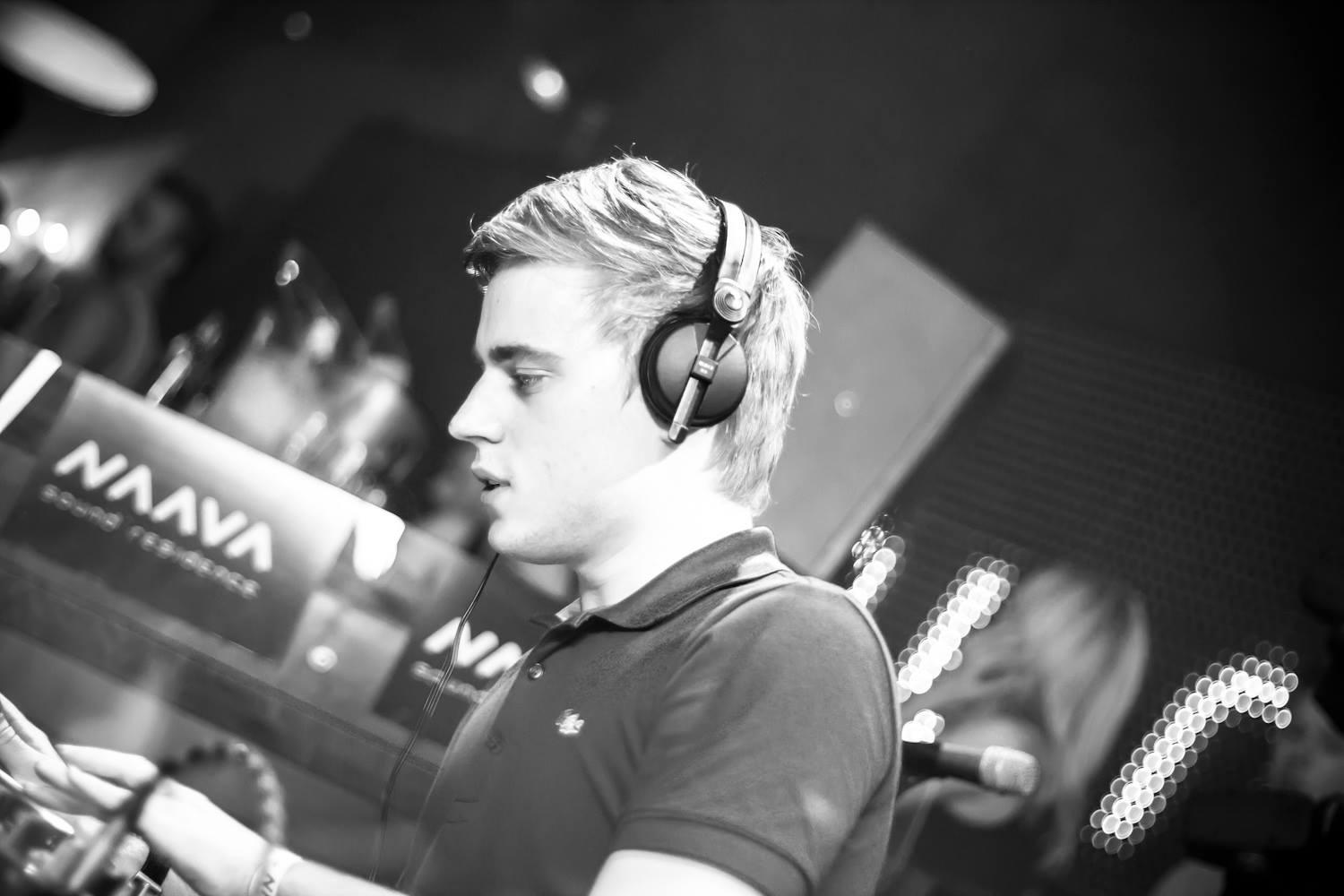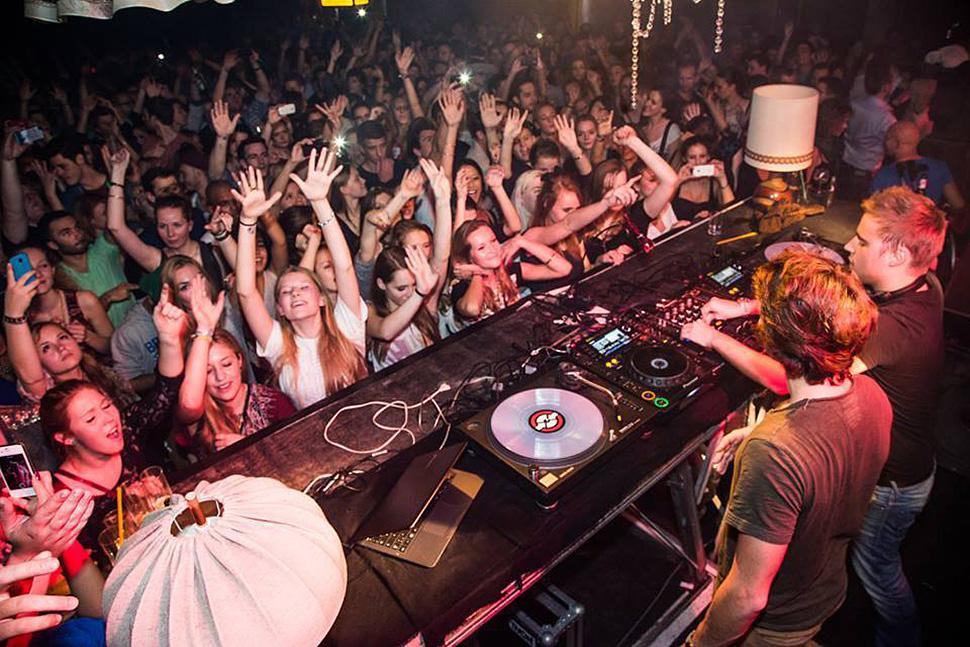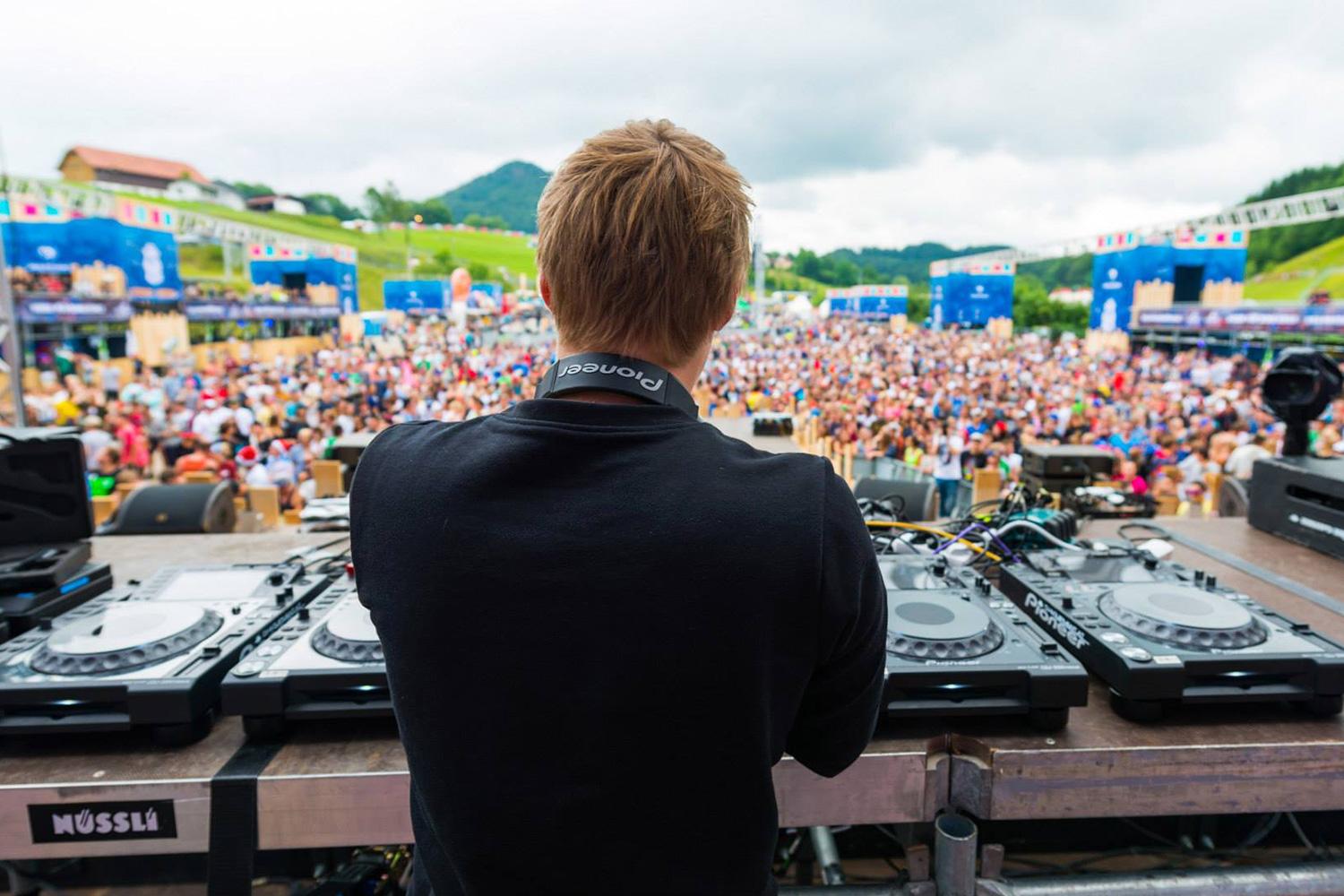
“I don’t want to copy anyone. I want to come up with fresh music.”
Still feeling those summertime blues, even after our last cool trop-house recommendation? OK, then we’ve got just the thing for you. Go cue up Klingande’s Jubel (which means “cheers” or “jubilation” in German), a song that mixes a wafting melodic saxophone lead line with sweet percussive drops and a sensual vocal from Lucie Decarne, and join the 48 million Spotify listeners who have made it one of the biggest chill-out summer songs in recent years.
Then you can groove on the whooshing wave of Punga and sing along to RIVA (Restart the Game) — the latter featuring a killer, guttural vocal from Broken Back — or any one of Klingande’s boss remixes for the likes of Alex Adair, Sigma, Wyclef Jean, and Clean Bandit.
The 24-year-old French DJ (real name: Cédric Steinmyller) is quite excited about how he’s been able to connect with such a massive audience in a short amount of time. “It’s becoming such a big movement, I can’t believe it, Klingande (pronounced Kling-ong) says. “It’s nice being able to spread the word to everyone, because it’s quite new. We have to educate people to this kind of music.”
Digital Trends called across the Pond to France to get Klingande’s take on this burgeoning electronic music style, his rules for remixes, and why WAV files can sometimes be too big for their own good.
Digital Trends: Would you call your style tropical house or melodic house? You must feel good to be at the forefront of a particularly cool movement in electronic music. Because there are so many harder-edged electronic styles out there, it’s nice to have something with a little different flavor to it. It’s refreshing.
Klingande: I don’t actually think of myself as tropical house. I do like it. But it’s quite different when you listen to Thomas Jack, Matoma, Kygo. That kind of music is not the same thing, I think. We are close, but not exactly the same. I’m more like Felix Jaehn, Klangkarussell, Bakermat. I’d call that melodic house. I think that’s the right term.
And you literally embody this sound, since the name you use, Klingande, is Swedish for “sounding.”
It was pretty tricky to find this name, but I think it’s a pretty good one. Our kind of music is very different from what people used to listen to for a long time. Tropical house is something very big. Kygo sets a very good example. It’s amazing how famous he is. I started touring before him, and he came to some of my shows at the very beginning. I couldn’t believe it. I saw that he was growing so fast. He wasn’t so big yet, and the crowd recognized him already. It’s amazing.
“We have to educate people to this kind of music.”
Well, now you’ve got that love coming back to you, considering how big Jubel has become.
Yes. But it’s not enough for me — two singles, three singles. I want to move on with everything to be a real artist. At the moment, it’s just the beginning for me.
It’s certainly not a bad way to start — 48 million listens for Jubel on Spotify and 17 million on Soundcloud, and I see those numbers going up every time I listen to it. Did you ever think when you started that things would get so big?
No, never. I was expecting nothing! I just made the song in my bedroom, and put it on YouTube and Soundcloud, and then everything happened. I was very surprised about it. It’s great! I’m always working or out on the road, so I don’t always see what that means. It’s difficult to explain, but in a way, I understand it. Maybe one day I’ll hear that song, and I’ll go, “Whoa, OK. I have done that!” (laughs)
What kind of gear and plug-ins do you use?
A lot of stuff. I have some analog gear. For the native-instrument stuff, if I have to choose for the mixing, I will go to the UAD plug-in or the Waves plug-in.
In terms of sound quality, are you into doing high-resolution 96/24 mixes?
Ahh, not really, I don’t really care about it. No, after finishing a song, I send my stems to the mastering guy, and that’s it. I leave it for him.
But I can hear the difference, of course, between high-quality files and low-quality ones. You can really feel it when you play it in the club. And if you go listen to it on headphones, the sound is very different.
Other DJs have told me that when they spin in clubs, they try to only use WAV files and not MP3s. Is that what you do?
Yeah, I try to, but the thing is, the WAV size is so heavy, and the USB stick is not that great. I always take extra care, because loading a big file on a puny stick — you don’t know if that’s going to make it be more slow, so I’m always scared to use the WAV file. If you send me WAV files, I’m going to use WAV files. But I’m not like, “Oh, I only need WAV files.” If I have to put a lot of songs on Beatport, I’m going to use an MP3.
I was talking with Matoma recently, and he said something similar — as much as he likes using WAVs, the files are so big that sometimes you just don’t have enough space for everything.
Absolutely. That is a problem. Maybe one day we’ll find another way to have big files take up less space. Right now, they’re just too big.
You studied music production in London — where did you go for that?
A school called Point Blank. It was quite nice. When you are a beginner or starting from scratch, it’s really great. I already had some experience before I went into the music production part. When we talked more about the mixing, that was what I was looking for.
Was there something you learned there that you still use today in your own production style?
Like techniques? The very interesting thing for me was in each course, you had a goal, like you had to produce a hip-hop song or a jazz song, so I have experience with a lot of different genres. And I learned a lot about things like compression, equalization, and the kinds of things that if you don’t go to a proper school, it is very difficult to learn on your own.
“Some people will say, ‘Ohhh, you did shit. Don’t touch Nirvana. You can’t remix them.’”
You also play the keyboards.
Yeah, I play keyboards. I started when I was 5 or 6 years old. I’m a terrible pianist, but I can learn, how do you say, when the gods are nice. (laughs)
You’re the one playing the keyboards on Punga — that didn’t sound so bad to me. Do you think how you were trained classically plays into how you do your mixes? You have a great sense of melody.
Yeah, yeah. When I learned piano, I was trained to play all this very difficult music. But pop chords are very simple, four chords. It’s not very difficult to play, and it won’t impress other pianists. But I like to keep my songwriting easy. If I have to take a real piano with me, I always look for a Yamaha. About a month ago, I signed up for an online piano course, but I haven’t had time yet to practice. (laughs)
Let’s talk about RIVA (Restart the Game), another big hit of yours. That one took you a long time to put together.
It took me a year to finish. I don’t know why. It was unexpected that Jubel was to be such a huge success, that I didn’t know what to do next. I went, “Oh, OK, I don’t want to do the same thing again.” I tried a lot of different kinds of music. The thing is, when you are working with a singer, he also has to be happy with it, so it took a long time to find the right arrangement.
And you two probably had two different ideas about how you wanted it to sound, so you had to come to some sort of compromise.
Yeah, because he came to me with an idea that was too much like someone else, and I knew I had to work a lot on it to make it sound really different from that. I don’t want to copy anyone. I want to come up with fresh music.
That’s an admirable goal. Who’s playing harmonica on that track?
It’s not me. It’s Greg Zlap. He’s very big in France, very amazing. Like, how can I say in English, I want to have a make-love-a-thon when he gets on there. It’s cool. (laughs)
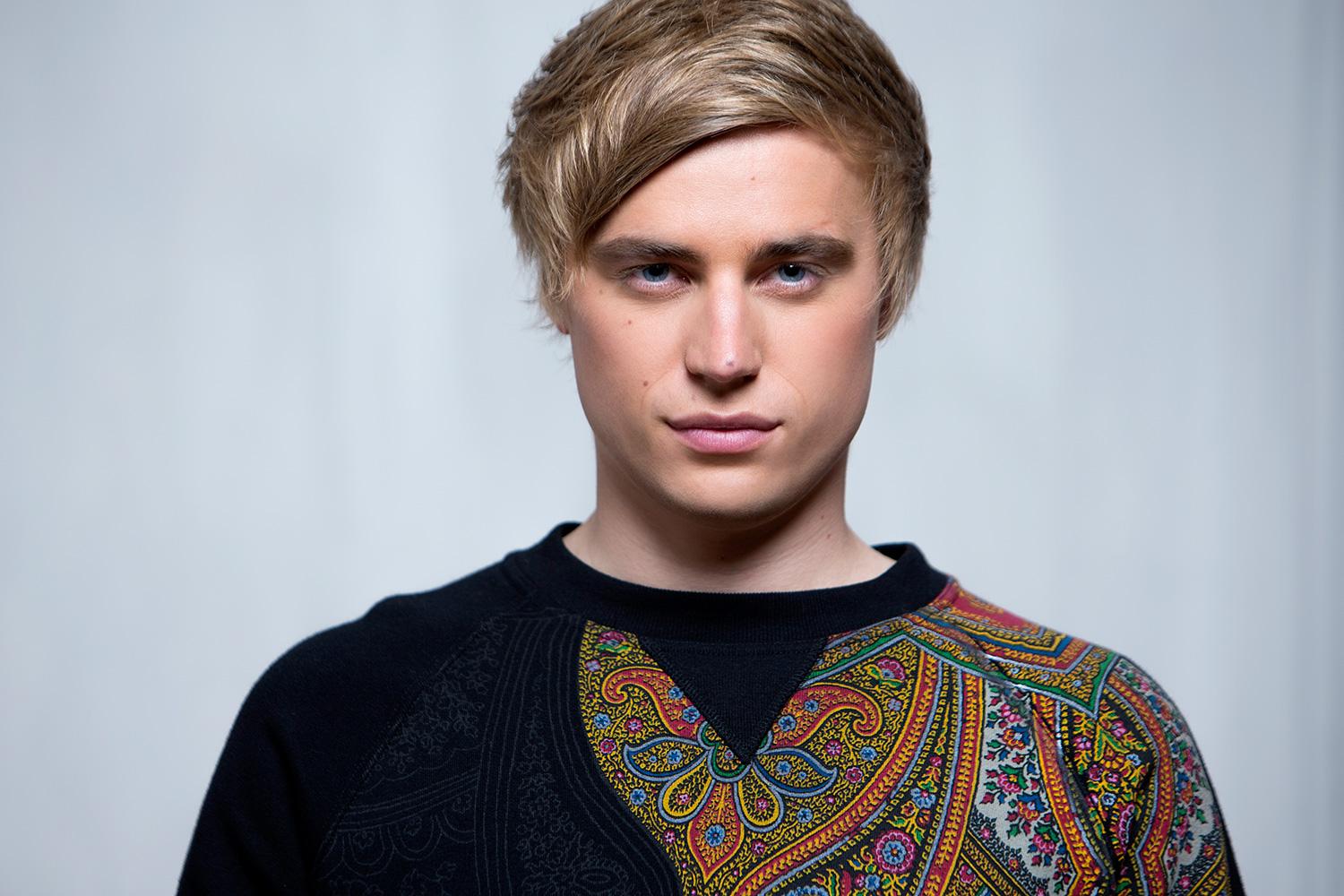
As a producer, is there a particular sound you’re going for with the real instruments in your mixes? How do you want them to come across?
The piano is the one instrument I’m most comfortable with, because I know how to play it. When I have the chords worked out on the piano, I try to use another instrument that’s not already “famous” in this kind of music, so I felt the harmonica was powerful for use on RIVA. Next, I might use the violin. Every time, I’m trying to find another instrument to make things different.
Would you get to the point where you’d like to bring an entire band up onstage with you?
Yeah, that’s what I want! (laughs) That’s what I want. That’s why I’m doing a lot of songs with instruments. I’m working on a jazz song right now. I just need to find the right instruments for it, and a good vocal.
But yeah, my dream next year is to tour with a real band — and find me a DJ, because I’m more of a producer than a DJ. I really love DJing, but I think I would love to play drums live. I think that’s pretty cool. Give me a drum pad, and I’ll be ready to play.
I’d like to see that. And we’ll be getting a full album from you, at some point?
I can tell you — I hope next year. I want to take my time, even though I know people are waiting on it. I am working on a new single for September or October. Because I’m on tour, it’s difficult to find time in the studio to finish stuff.
“My taste is going to evolve with the time.”
Are you a fan of putting music out on vinyl?
It’s on my bucket list to have vinyl, yes! But not yet.
So you like that format?
I love it. Whenever I go to some friend’s house, I like to hear something on the turntable. I really love the sound of it. It’s really pure. So clean. My music production goal is to replicate that sound — have some ambient noise on vinyl, and then put it on in the background to get that feeling.
Do you have a favorite album, one that still resonates with you?
Maybe the first one I bought was from the band Oasis. I was such a huge fan. My favorite kind of music is what you call alternative, and after that, I bought Nirvana. I think Nirvana is my favorite one.
Do you like the Foo Fighters?
Oh yeah. I just saw the video of all those musicians playing the Foo Fighters song, Learn to Fly. It’s amazing. (chuckles) It’s a very big thing to be a fan of doing something and then being asked to come play it together with so many people like that.
Would you do a Nirvana or Foo Fighters remix if you had the chance?
Yeah, I would love to do a Nirvana one, maybe one day. It’s very tricky. I like the originals so much, and if I really like a song, I don’t want to remix it. If the song is perfect, I don’t see the point of doing a remix of it. Because always some people will say, “Ohhh, you did shit. Don’t touch Nirvana. You can’t remix them.”
It’s a lot of pressure to go in and remix songs by established artists who are known so well.
There’s almost no reason to try it. It’s too tricky, too difficult.
Unless you figure out how to do it right, like you did with that way-cool Gamper & Dadoni remix of Otherside, by the Red Hot Chili Peppers.
Oh, I wanted to speak about them, yeah! I’m a huge, huge fan of Red Hot Chili Peppers. They have a lot of brilliant songs. Californication is really great, it’s always got me singing along. Just adding percussion on the original — I think it’s great. I don’t like it when you take a really critical song and you add things like synthesizer changes on it.
I like how you don’t stand still with your own songs and your remixes. You take your influences and turn them into something original. What can we expect to hear on that next single?
I really don’t know what I’m going to do! (laughs) I don’t want to say yet what the name of the next single is, because it still may change.
One day you make this kind of music, and the next day, you can do something very different. My taste is going to evolve with the time.
